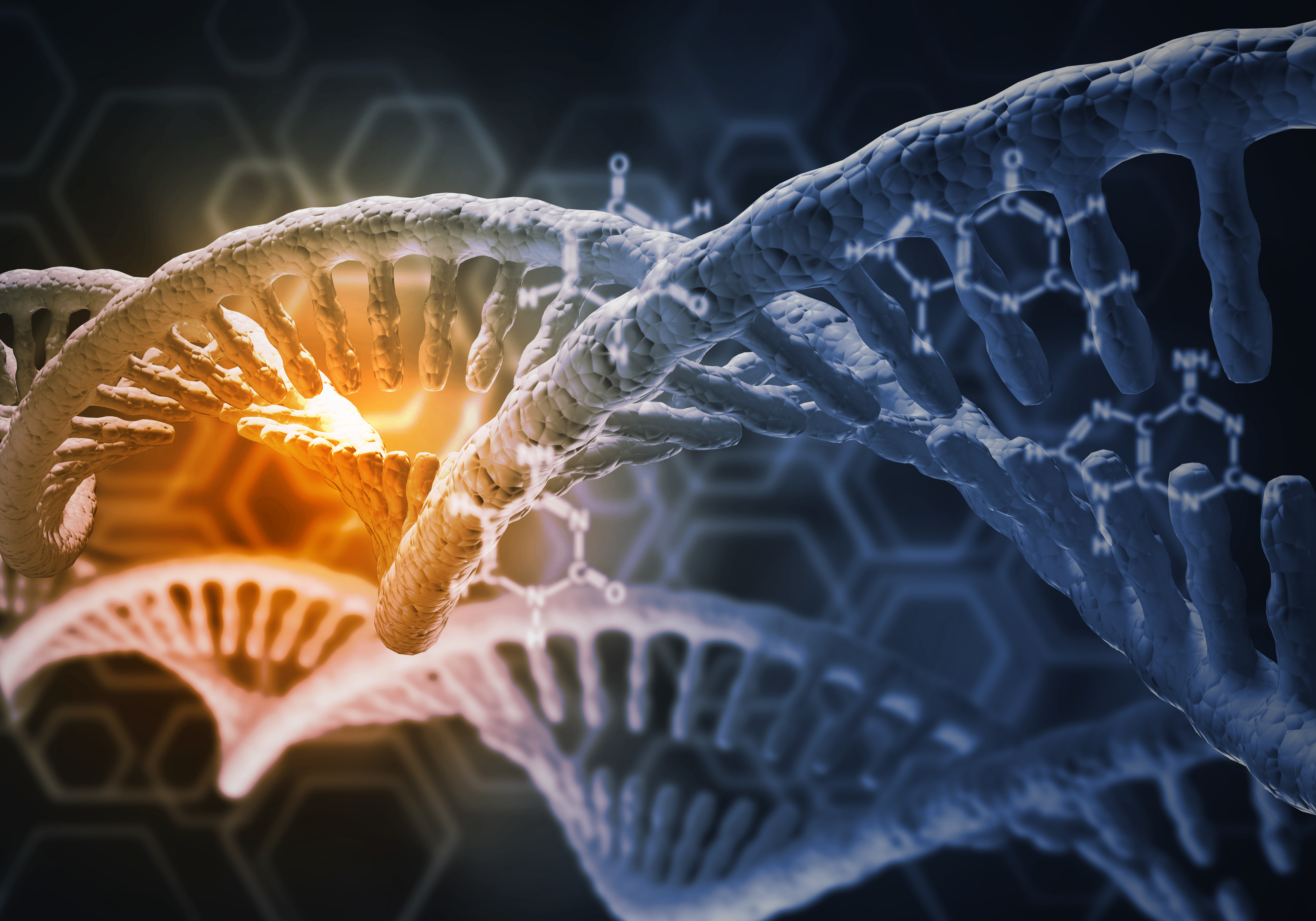CD46 Mutation Not Enough to Trigger aHUS, Genetic Analysis Shows

A common mutation in the CD46 gene associated with atypical hemolytic uremic syndrome (aHUS) onset does not seem to be enough to trigger the disorder, as it occurs in both affected and unaffected family members, a genetic analysis shows.
Further analysis found evidence of an unknown factor circulating in the blood of a male patient that, when combined with the CD46 mutation, caused aHUS.
The researchers said their findings “highlight the complexity” of the genetics underlying aHUS.
The analysis was published in the journal Frontiers in Medicine, in the study “Molecular Studies and an ex vivo Complement Assay on Endothelium Highlight the Genetic Complexity of Atypical Hemolytic Uremic Syndrome: The Case of a Pedigree With a Null CD46 Variant.”
Mutations in the gene that carries instructions for the MCP protein, also known as CD46, accounts for up to 9% of aHUS cases.
CD46 is a component of the complement system, which is a part of the immune system that helps clear microbes and damaged cells. Mutations in CD46 trigger uncontrolled activation of the complement system, leading to clots in small blood vessels, and causing disease.
However, not all people who inherit complement system mutations develop aHUS — a phenomenon known as incomplete penetrance. Other genes or environmental factors, including common viral and bacterial infections, organ transplants, and pregnancy, are thought to contribute to disease development.
Now, researchers at the Mario Negri Institute for Pharmacological Research, in Italy, designed a study to investigate the factors that determine the penetrance of aHUS associated with CD46 genetic abnormalities.
Genetic screening of complement disease-associated genes was conducted in 485 unrelated people with aHUS and some of their family members, along with 319 ethnically matched healthy people, used as controls. The results revealed 189 cases with rare variants (mutations). Of these, 39 people (8%) carried 15 CD46 variants.
The most frequent CD46 variant, which led to a shorter MCP protein, was called c.286+2T>G. It was found in 13 of the 485 aHUS patients, but not in any of the controls. Patients who carried this change had an age of disease onset ranging from 1 to 58 years.
A genetic screen of members from seven patient-related families identified 25 people carrying the c.286+2T>G variant, but only those seven developed the disease; thus, the penetrance of aHUS with this variant was 28%.
As a prototype example of incomplete penetrance, the team focused on a large family in which one male patient, born from healthy parents, carried the c.286+2T>G variant. This man developed a severe form of aHUS and experienced kidney failure. Meanwhile, other family members were negative for aHUS and other kidney diseases.
This patient bore this variant in one of the two CD46 gene copies inherited from his parents (heterozygous). Further genetic screening of 16 healthy family members found six paternal relatives who carried the same heterozygous variant but did not develop aHUS.
Surprisingly, the man’s father and one paternal aunt carried this variant in both CD46 gene copies (homozygous) but were otherwise unaffected. Analysis of other complement aHUS-associated genes did not find additional variants in this patient or his parents.
An analysis focusing on additional genetic changes associated with aHUS identified three risk factor variants in the patient. But these variants were uncovered in other family members, meaning they were “not enough to explain the disease in c.286+2T>G carriers,” the researchers wrote.
Cells isolated from the patients and unaffected c.286+2T>G carriers showed the production of CD46 was severely impaired in isolated blood cells compared with controls, with about a 50% reduction in the patient’s cells and more than 90% in the unaffected homozygous father and aunt.
The c.286+2T>G mutation led to two different forms of CD46 messenger RNA, the molecule that carries the protein information from DNA. Still, these were found in both the affected and unaffected carriers.
Given the lack of a direct connection between this variant and aHUS, the team wondered if an unknown factor caused aHUS in this patient but not in his family.
Blood serum was collected from him, while he was in remission, and mixed with endothelial cells that line tiny blood vessels (ex vivo test). As expected, compared with control serum, there were significantly more clot deposits.
Serum from his unaffected father, who carried two copies of the CD46 variant, and from a heterozygous unaffected relative, did not increase deposits. However, serum from his mother and maternal uncle — who did not carry this CD46 variant — led to abnormally high deposits.
“These results indicate that the [patient] inherited from his mother an abnormality in a circulating factor that predisposes to complement activation on endothelial cells,” the researchers wrote.
These findings “highlight the complexity of the genetics of aHUS and indicate that CD46 deficiency may not be enough to induce aHUS,” they concluded.
“Combining genetic studies with the ex vivo test of complement activation on endothelium may contribute to explaining the determinants of penetrance in this complex disease,” they added.






